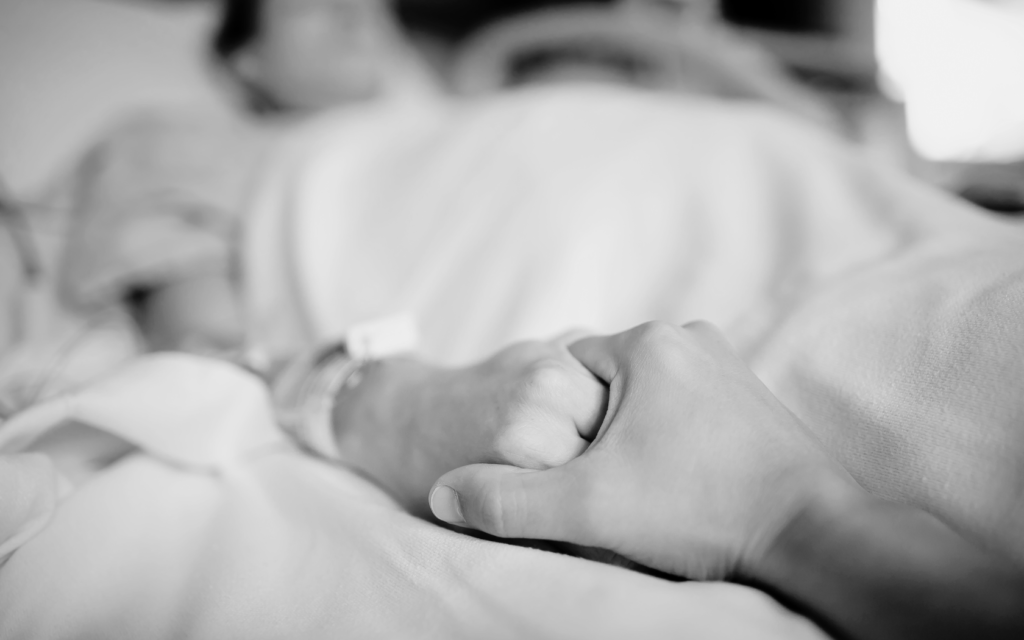A hospital is where people get healthy…but it’s also a place where people get sick. Unfortunately, with so many sick people in a hospital, germs have their way of making the rounds, especially if hospital staff don’t follow protocol to keep them from spreading. Have you or a loved one contracted a serious hospital-acquired infection because a member of staff was negligent?
You might wonder if you can file a hospital-acquired infection lawsuit. Below, we’ll tell you all about hospital infection claims, and what compensation you may be able to collect from them.

What is a hospital-acquired infection lawsuit?
A patient or their family can file a lawsuit against a hospital for an infection acquired during the patient’s stay.
Healthcare-associated infections (HAIs) or nosocomial infections are infections that patients acquire while receiving treatment for another condition. Patients didn’t have these infections before they entered the hospital.
In hospital infection claims, the plaintiff (the patient or their family) alleges that the hospital or healthcare facility was negligent, and this negligence led to infection. Unfortunately, it doesn’t take much for germs to easily hitch a ride to their next host. It can happen in seconds. All it might take is a “small” mistake, such as…
- A staff member forgets to wash their hands.
- A doctor removes their mask.
- Instruments aren’t sterilized properly
- Medical equipment or facilities don’t get cleaned
- Staff wasn’t trained properly on cleaning procedures
- A staff member inserts a urinary catheter the wrong way
- A catheter is left in a patient for too long
- A patient’s skin isn’t cleaned and prepared before an operation

What Are the Most Common Claims?
The most common hospital infection claims involve infections such as:
- Surgical Site Infections (SSIs): These can result from improper sterilization of surgical instruments.
- Central Line-Associated Bloodstream Infections (CLABSIs): Bacteria or other pathogens enter the bloodstream through a central venous catheter.
- Catheter-Associated Urinary Tract Infections (CAUTIs): Bacteria enter the urinary tract through a urinary catheter.
- Ventilator-Associated Pneumonia (VAP): These infections occur in patients who are on mechanical ventilation. They can result from contaminated respiratory equipment.
- Clostridium difficile Infections (C. difficile): Bacterial infections that cause severe diarrhea. They can result from exposure to C. difficile bacteria in the hospital.
- Methicillin-Resistant Staphylococcus aureus (MRSA) Infections: These bacterial infections come from contact with contaminated surfaces, equipment, or healthcare workers.
Compensation for Hospital-Acquired Infections
You can seek compensation for various damages related to an infection, including:
- Medical expenses
- Lost wages or earning capacity
- Pain and suffering
- Permanent disability
The amount of compensation you could get from a hospital-acquired infection lawsuit depends on how the infection affected you. For example, let’s say you went in for a small surgery where you expected to stay in the hospital for a few days afterward at the most. But then you contracted a life-threatening infection and ended up at the hospital for months. That’s a big difference that could warrant compensation.
Substantial harm is what entitles you to substantial compensation. Usually, substantial harm in hospital infection claims involves:
- Long hospital stays
- Additional medical treatments
- Permanent disabilities
- Loss of life
In cases of severe harm or wrongful death, families can seek compensation for the loss of life. In that case, a family would file a wrongful death lawsuit.

How Can I File a Hospital-Acquired Infection Lawsuit?
Hospital infection claims can be complex and challenging to prove. They require you to prove the following:
- The patient contracted the infection in the hospital
- The hospital’s negligence directly contributed to the infection.
- The infection caused harm to you (your lawyer can assist you in determining the monetary value of this harm).
To help prove your case, you may need:
- Medical records
- Expert testimony from doctors
- Evidence of infection control practices within the hospital
A lawyer can help you gather the evidence above and build your case. Should you choose to hire a medical malpractice attorney, you won’t have to pay anything upfront. Your lawyer will only get paid if you receive compensation.
To speak with a lawyer and to find out if you have a case, send us a brief message or call to schedule a free consultation. As experts in medical negligence, we understand the complexities of hospital-acquired infection lawsuits thoroughly. Should you have a case, we’ll fight on your behalf to obtain maximum compensation.




